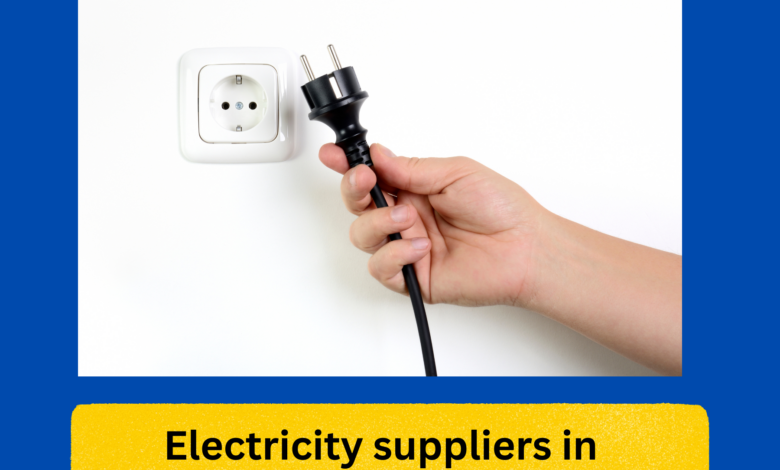Electricity suppliers in Germany: Everything you need to know

Electricity suppliers in Germany: Everything you need to know
You have much to plan and do in your first few weeks in Germany. Switching your apartment’s electricity provider is unnecessary, but if you want to make sizable financial savings, you should keep reading. We describe how energy functions in Germany and how to locate the finest power service providers there for you. Move-in, use the city’s electricity, and then consider switching. Need a German bank account first. Choose later from 3 ways to manage costs. In this article, you will get to know about Electricity suppliers in Germany: Everything you need to know.
🌿 Green Power, Green Savings! 💚 🎉 Switch to VW Naturstrom Classic by Feb 15, 2024.
Get a 50 € voucher! Use promocode: PROMO50
✅ 100% Renewable Energy ✅ Eco-Friendly ✅ Reliability by Volkswagen
📝 Sign up at www.vwnaturstrom.com, choose Classic tariff, and claim your voucher! Act now for a greener, brighter future! 🌞💡
German Firms Providing Electricity
Locate your Service Providers
Three Electricity Provider Options in Germany?
Electricity is typically not included in the rental cost of a standard lease. As a result, electricity will be a separate service that you must pay for. When you have moved into your apartment or home, however, you can select your electrical provider. In Germany, there are about 1,200 power providers, and depending on where you live, you should be able to select from about 100 of them.
If you reside in a shared apartment (WG), your rent or other fees (Nebenkosten) should already cover the cost of energy. The three alternatives for selecting an electrical provider in Germany are briefly summarized as follows:
1) Continue Being With Your Grundversorger
-
- Automatic Setup: Energy supply from the basic city provider is automatic; no action is required.
- Identification: If unsure, search “Strom Grundversorger + your city” on Google.
- Name Format: In cities, the basic city provider is often known as Stadtwerke + city name.
2) Replace with Ostrom
-
- Disruptive Start-Up: Founded in 2020, Ostrom challenges Germany’s traditional energy market.
- English Support: Offers an English website, customer support, and live chat.
- Unique Plan: Provides a single digital, flexible, renewable energy plan with no need for comparisons.
- Monthly Cancellation: No long-term commitment; you can cancel every month.
3) Evaluate conventional energy suppliers
-
- Comparison Tool: Use StromAuskunft or similar tools to compare providers in Germany.
- Translation Aid: Translate using Chrome’s ‘Translate to English’ tool; key translations in a Wiki.
- Yearly Ritual: If not using Grundversorger or Ostrom, make it an annual practice to switch suppliers.
- Market Instability: Germany’s electricity market is volatile; expect regular price increases.
Change Your Electricity Provider In Germany In 3 Easy Steps
1. Examine electric price ranges
-
- Household Details: Specify the number of residents in your home.
- Consumption Estimate: Input your yearly electricity consumption.
- Postal Code: Enter your postal code for location-specific results.
- Select Reliable Providers: Check the “Germany’s best electricity providers” option.
2. Choose a new energy supplier
When contrasting the various outcomes, be sure that the tariff you select contains the following:
-
- The maximum contract term is 12 months
- Maximum six weeks’ notice
- No down payments, upfront costs, or package offers
- A brief contract extension
- Price assurance for the duration of the contract Positive customer feedback
- Bonuses must be properly labelled as such.
3. Watch for Verification
-
- Confirmation Email: The new supplier will email a confirmation and contract upon entering personal details.
- Contract Termination: The new provider will handle the termination of the contract with the current supplier.
Germany’s electricity costs from 2019 until 2023
- Germany’s average wholesale power cost in July 2023: was 77.5 euros per megawatt-hour.
- Year-over-year decrease: 75%.
- Record high power cost in August 2022: nearly 469 euros per megawatt-hour.
- Factors contributing to Europe’s rising electricity costs:
- Increasing natural gas and coal costs.
- Reduced wind energy production due to low wind speeds.
- Russia’s invasion of Ukraine.
- Extremely hot summers.
- Increased heating demand during frigid winters.
In the realm of German electricity providers, diverse options await. Whether sticking with the basic city supplier, embracing innovative start-ups like Ostrom, or conducting comparisons, informed decisions can pave the way to reduced costs and renewable energy. Stay flexible, and adapt to the dynamic energy landscape for a brighter future.
Read more at How To Abroad:
Energy Suppliers in Germany: Everything You Need to Know
Gas suppliers in Germany: Everything you need to know
Want to study in Germany? How To Abroad can help you achieve your academic dreams.

